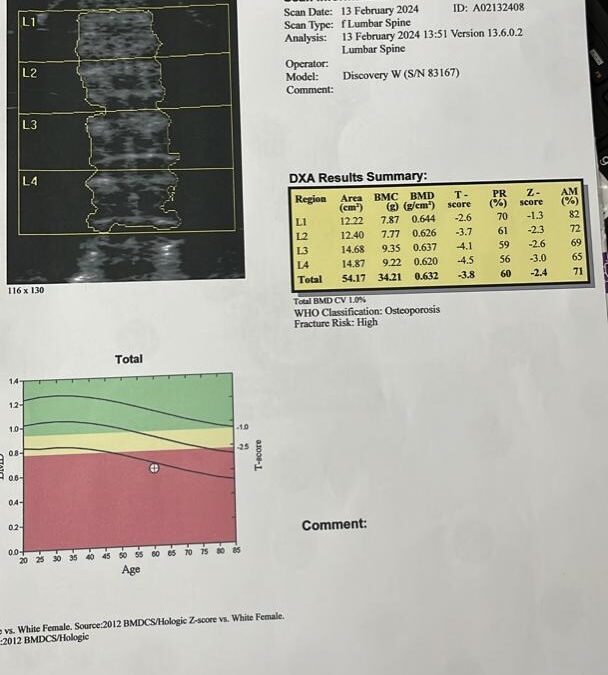When it comes to maintaining our health, bones play a crucial role, acting as the framework of our body, protecting organs, anchoring muscles, and storing calcium. A bone density test, or DEXA scan, is a way to measure the strength and density of your bones. It’s like a snapshot of your bone health, helping to assess the risk of fractures and conditions like osteoporosis. But what do the results mean? Let’s break it down in simple terms.
The Basics of Bone Density Results
The outcome of a bone density test is usually reported in two main scores: T-score and Z-score. These scores compare your bone density to different standards.
T-score: This compares your bone density with that of a healthy young adult of your sex. The T-score is the most telling:
• Above -1: This is considered normal. Your bones are strong and healthy.
• Between -1 and -2.5: This indicates low bone mass, or osteopenia. It’s not as severe as osteoporosis, but it’s a heads-up that your bones are weaker than ideal.
• Below -2.5: This score suggests osteoporosis, meaning your bones are weak and more prone to fractures.Z-score: This score compares your bone density to what is typically expected for someone of your age, sex, weight, and ethnic or racial origin. A Z-score lower than -2.0 could indicate that something other than aging is causing bone loss.
Why It Matters
Understanding your bone density results is important because it can influence your approach to bone health. If your scores indicate osteopenia or osteoporosis, your healthcare provider may recommend lifestyle changes, dietary supplements, or medications to help strengthen your bones. It’s also a cue to be more mindful of activities that increase the risk of falls and fractures.
Taking Action
Regardless of your results, it’s never too early or too late to start caring for your bones. A balanced diet rich in calcium and vitamin D, regular weight-bearing exercises, and avoiding smoking and excessive alcohol can contribute to stronger bones. If your scores indicate a concern, work with your healthcare provider to develop a plan that’s right for you.
Conclusion
In simple terms, a bone density test gives you a snapshot of your bone health, comparing your bone density with standard benchmarks through T-scores and Z-scores. Understanding these results can help you and your healthcare provider make informed decisions about how to protect your bones and reduce the risk of fractures, ensuring you stay active and healthy as you age.

